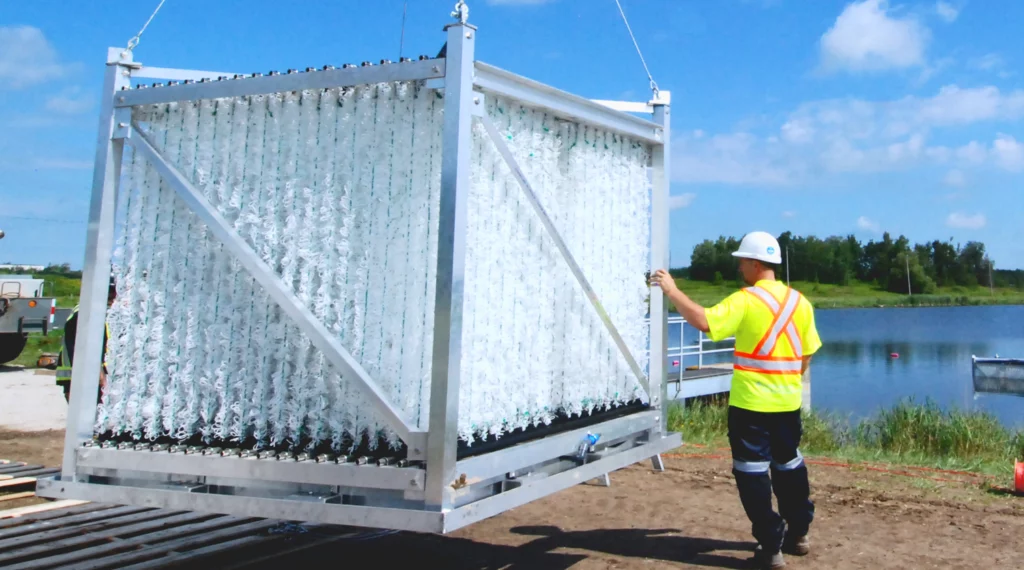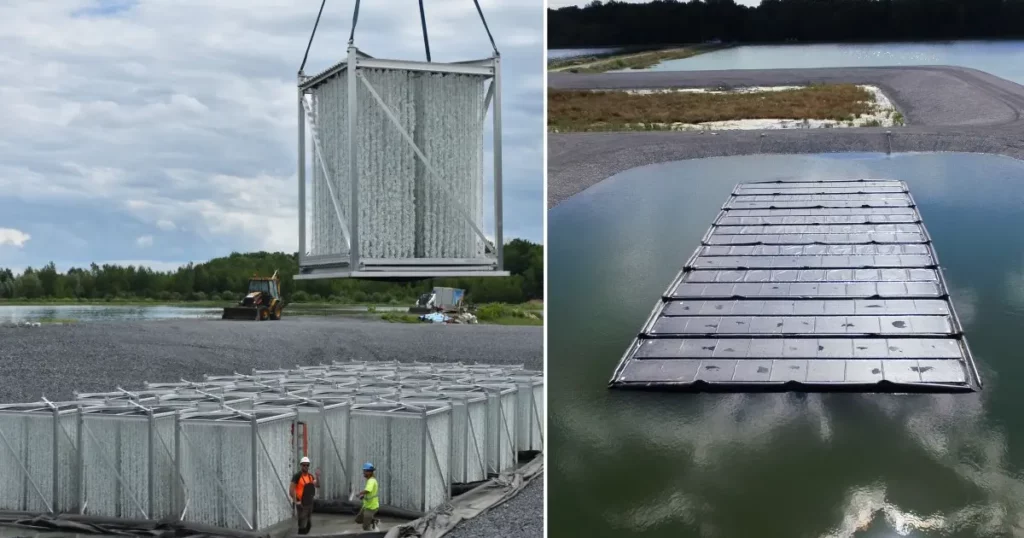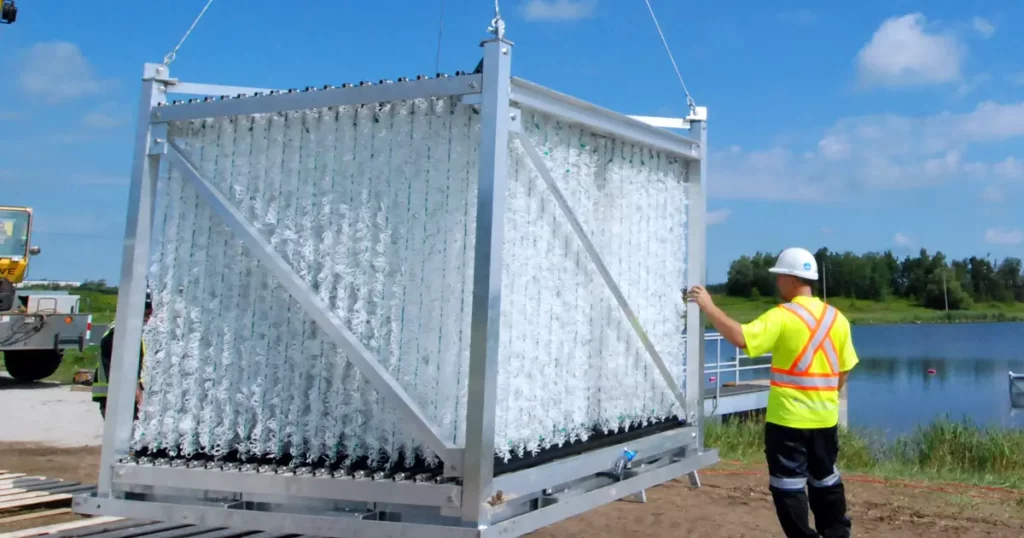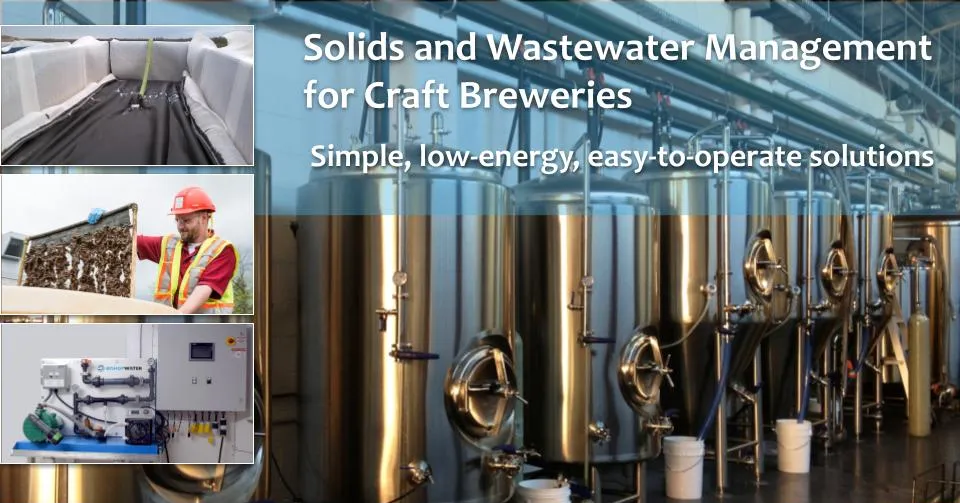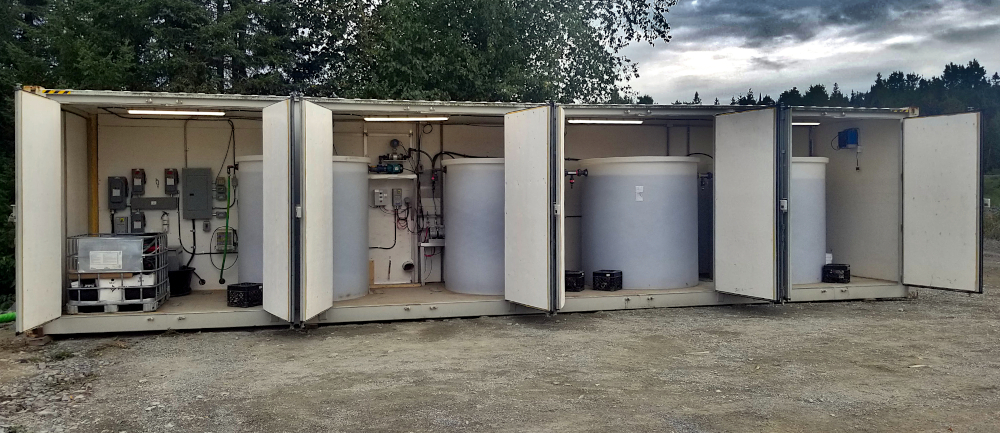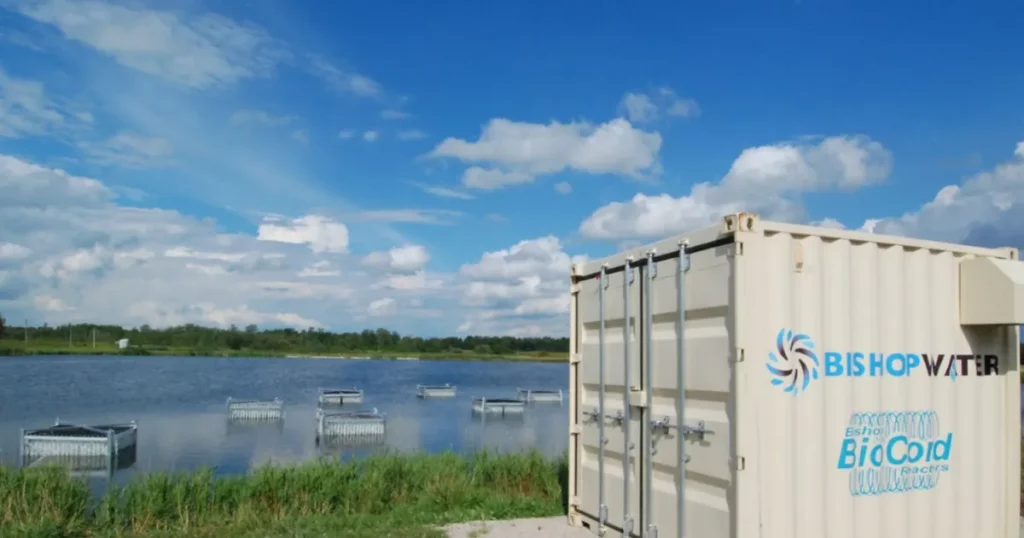
ARTICLE
Research aims to reduce GHG, energy use in BioCord® Reactors
Bishop Water is partnering with Western University in a new project with BioCord Reactors that aims to further optimize wastewater treatment efficiency, reduce energy consumption, and lower greenhouse gas emissions. The six-month collaboration will be funded by the Ontario Water Consortium’s Water Industry Growth Program (WIG).
BioCord Reactors are like condominiums for bacteria, where densely arranged loops of polymer fibres provide a massive surface area on which preferred, naturally occurring bacteria can thrive for optimized nutrient removal. Once installed, the system uses very little electricity, and requires almost no operator oversight to achieve its performance targets.
The project is featured in the December issue of OWC’s e-newsletter and provides a glimpse into the anticipated outcomes of the collaboration with Dr. Martha Dagnew at Western University and her team. The study will occur at the Greenway Wastewater Treatment Plant in London, Ontario, leveraging the site’s demonstration facilities which are supported by Western University, the City of London, and funding from OWC.
Read the OWC article to learn more about our collaborative energy optimization project for BioCord Reactors.

